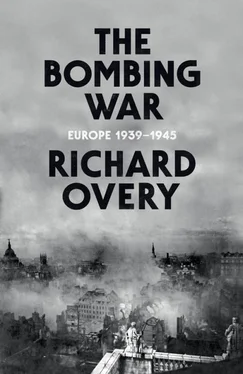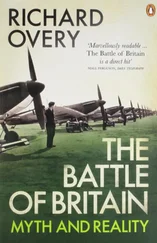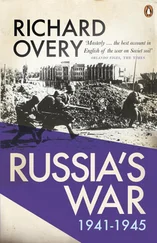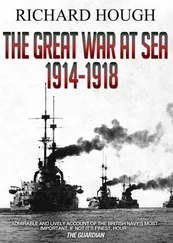1 ...7 8 9 11 12 13 ...254 Although Trenchard and Douhet are now hailed as pioneers in air power theory, their conclusions were over-imaginative and unscientific and, for the military establishments of the 1920s, an invitation to indulge in what were still widely regarded as morally unacceptable violations of the laws of war. Despite the subsequent status enjoyed by both men, they remained relative outsiders in the 1920s. Douhet was briefly Air Minister in Mussolini’s first Cabinet in 1922, but was then retired from military service, sacked as minister, and left to argue his case from the wings. Trenchard spent much of his term as chief of staff fighting to retain air force independence and to forge a distinct strategic identity for his force. Neither was a household name in the 1920s, though Douhet’s works became more widely known in the decade that followed. No air force in the 1920s (or indeed in the 1930s) deliberately created a strategic bombing capability to eliminate an enemy rapidly and ruthlessly by assaulting civilian morale, a strategy crudely described in the interwar years as ‘the knockout blow’. What was significant about both Douhet and Trenchard, and a great many other post-war military thinkers, was the assumption that future war would be waged between whole societies in which the citizen, whether in uniform or in a factory, or driving a train or ploughing the fields, whether male or female, would contribute to the national war effort. This assumption made industries, cities and workers objects of war as much as the armed forces and put into sharper focus the pre-war fiction about the menace to civilization.
The European public in the 1920s saw the limited bombing of the Great War in much starker terms than most of the military establishment. The critical change brought about by the war was the widespread realization among Europe’s population that there was no possibility in any future war of civilian immunity. Small though the bombing effort had been during the Great War, it was taken to symbolize the crossing of an important threshold, in which science in the service of war could subvert conventional forms of military conflict in favour of a wilful assault on civilian society. Commenting in 1923 on a claim that hostile aircraft could poison the whole of London in three hours, the English historian, Goldsworthy Lowes Dickinson, wrote: ‘war now means extermination, not of soldiers only, but of civilians and of civilisation’. 23Lowes Dickinson was not a military expert, but much of the scaremongering literature in the interwar years was made more chilling because it was written by soldiers or ex-soldiers, or by scientists and engineers who paraded their expertise to the public to give their conclusions greater weight. The Earl of Halsbury, the author in 1926 of 1944 , a novel about a future gas attack to annihilate London, was the same Lord Tiverton (now elevated to higher noble rank) who had planned the strategic offensive against Germany in 1917. He claimed in his preface that there was nothing fantastic about his description of the gas attack, which he had based on current expertise on the possible effects of chemical weapons. In 1927 he elaborated for a popular newspaper audience the lessons of his novel: ‘The central organisations essential to modern warfare are carried out in “open towns” and largely by civilians… The first conclusion that emerges is that an attack will be made upon the civilian population .’ 24These sentiments had much in common with Douhet, and with a wave of alarmist literature on air warfare produced by military experts in France. In 1930 Lieutenant Colonel Arsène Vauthier in The Aerial Threat and the Future of the Country warned that in the next war French cities would be smothered with gas and bombs: ‘the entire future of the country is at stake, the entire civil population will be placed abruptly on the warfront’. 25
Two particular arguments can be identified in the scaremongering literature of the interwar years: first, that the destruction would be aimed at major cities; second, that the destruction would be swift and the degree of damage annihilating. In most imagined accounts of bombing there were standard tropes about the surprise, speed and scope of air attack. Douhet wrote in ‘The War of 19—’, published in Italy’s leading aeronautical journal in March 1930, shortly after his death, about an air war between France and Germany in which four French cities are attacked by German aircraft with 500 tons of incendiary and poisonous bombs, enough to destroy the cities completely. The raid takes just one hour, and the four cities are burnt to the ground. 26Frank Morison in War on Great Cities , published in 1938, just months before the outbreak of the next war, talked of a million dead in London from a gas attack, and millions more following swift British retaliation on Paris, Rome or Berlin. One 5,000-lb bomb would be enough, he suggested, to destroy completely the whole administrative and government centre around Whitehall. Like many of the experts writing on bombing he assured his readers that this was ‘no fanciful picture’ but a cold statement of fact. 27Tom Wintringham, a former soldier and later a commander of the British International Brigade during the Spanish Civil War, painted an equally lurid picture in 1935 of the end of Europe’s major cities: 5–6 million killed in London, Paris and Berlin by a combination of gas, high explosive, exposure, disease and hunger. 28In all these accounts, and with special emphasis in Douhet, there is little effective defence against bombing, and none against gas or germs.
Most of these pessimistic representations of air warfare were indeed fanciful portraits, divorced from technical and scientific reality. What they all shared was an understanding of the apparent vulnerability of the modern city to the ‘knockout blow’. This was so widely discussed and endorsed that it requires some explanation. By the 1920s much of urban Europe was of relatively recent construction, with cities filled with migrants from the villages or immigrants from abroad. The large new populations lived in congested, quickly constructed terraces and tenements, and serviced the burgeoning ports and industries stimulated by the rapid development of European trade and manufacturing. The new cities were regarded by many social critics (and most of Europe’s conservative elite) as socially amorphous and alienating, with an underdeveloped sense of community and unstable values. They were sites of pre-war and post-war political radicalism and, in the case of Russia, of revolution. The new cities were also popularly associated with a rising tide of crime, vice and genetic defects. These views of urban life reflected profound class and regional prejudices; they surfaced regularly in accounts of future bombing precisely because the rootless urban crowd was expected to be more prone to panic. 29The account of the psychology of the crowd by Gustave Le Bon published in 1895, or William Trotter’s study of the herd instinct which appeared in 1916, gave popular sanction to the view that the character of modern urban life predisposed individuals to merge at moments of crisis into an unmanageable mob. A British Air Ministry official reflecting in 1937 on what he regarded as the unstable behaviour of ‘aliens’ and ‘the poorer sections of the community’ during the German bombing of London in 1917, concluded that ‘the capital cities constitute the popular nerve centres where the danger is greatest’. 30
City vulnerability was also regarded as a product of the complexity and interconnectedness of the modern infrastructure that supported urban life. The sudden dislocation of any one part by bombing was expected to unravel the whole and provoke a social catastrophe. The working of this process was explained in an article by the British philosopher Cyril Joad, writing in 1937:
Читать дальше
Конец ознакомительного отрывка
Купить книгу












